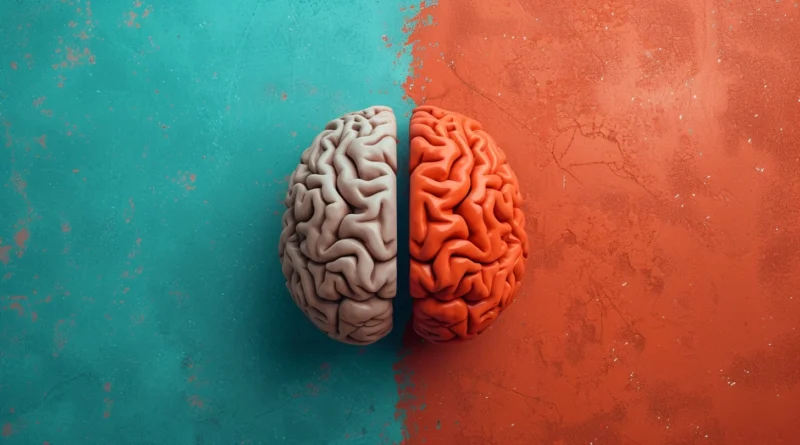Emotional Intelligence: The Secret Weapon for Personal and Professional Growth
Contents
- 1 Understanding Emotional Intelligence: A Primer
- 1.1 The Importance of Emotional Intelligence in Personal and Professional Success
- 1.2 Developing Self-Awareness: The Foundation of Emotional Intelligence
- 1.3 Enhancing Self-Regulation: Mastering Your Emotional Responses
- 1.4 Cultivating Social Awareness: Empathy and Understanding
- 1.5 Mastering Relationship Management: Nurturing Positive Connections
- 1.6 Embracing Emotional Intelligence for Personal Growth and Succes
- 1.7 Expanding the Reach of Emotional Intelligence: Applications in Various Contexts
- 1.8 Harnessing Emotional Intelligence in Healthcare: Enhancing Patient Care
- 1.9 Leadership Excellence: The Role of Emotional Intelligence in Effective Leadership
- 1.10 Building Emotional Intelligence in Organizations: Training and Development Initiatives
- 1.11 Challenges and Opportunities in the Digital Age: Navigating Emotions in Virtual Environments
- 1.12 Embracing Diversity and Inclusion: Leveraging Emotional Intelligence for Equity
- 1.13 Conclusion: The Future of Emotional Intelligence
- 2 Author
In our fast-moving and interconnected modern era, achieving success is not solely reliant on intelligence orientation or even technical skills. much, is generally determined by the level of Emotional Intelligence (EI or EQ). Emotional intelligence refers to the ability of an individual to identify, comprehend, and manage their own emotions while also interacting appropriately and empathizing with others . The discussion will involve explaining the importance of emotional intelligence, the elements that compose it, and real-life tactics to develop EQ.
Understanding Emotional Intelligence: A Primer

Emotional intelligence in turn can be defined as the ability to recognize, evaluate, and control one’s own emotions and those of others. There are four main aspects to emotional intelligence: self-awareness, self-regulation, social intelligence, and managing relationships. Self-awareness refers to recognizing and understanding our own feelings, qualities, defects, and values . Self-regulation is something most people are used to calling willpower . Social intelligence is the ability to recognize others’ emotions and requirements. Division Manager at a minimum passes the seventh component. .
The Importance of Emotional Intelligence in Personal and Professional Success
Emotional intelligence is essential in almost all life situations, such as personal relationships, academic performance, and professional success. People with high EQ are more likely to manage stress, communicate well, maintain good relationships, solve conflicts, and nurture healthy relationships with others. In the work environment, emotional intelligence is becoming essential in assessing individuals’ leadership abilities, teamwork skills, or general performance goltogel . Moreover, leaders with high EQ can be trusted, can inspire cooperative and display openness in their relationship with employees.
Developing Self-Awareness: The Foundation of Emotional Intelligence
Self-awareness is the foundation of emotional intelligence because it ultimately helps us become more aware of our feelings, motivations, and actions. Some ways to develop self-awareness include allocating time for self-reflection, using journaling and mindfulness techniques. Moreover, one should monitor their thoughts, feelings, and physical reactions and look out for any trends or stimuli that induce certain emotions. Ultimately, ask friendly individuals, mentors, or coaches for feedback on your thoughts and behaviors. Growing self-awareness will enable you to make more accurate judgments and allow you to act according to your principles and objectives.
Enhancing Self-Regulation: Mastering Your Emotional Responses
You need to self-regulate your emotions, impulses, and behavior in constructive ways and apply them in challenging circumstances . Try out stress-prevention methods to better self-regulation, such as deep breath, meditation, or progressive muscle relaxation. Cultivate emotional flexibility by reconceptualizing negative idea, taking a positive approach, and strengthening tool kits for managing difficulties. Prioritize jobs, be realistic about your ability to achieve objectives, and establish boundaries to avoid overworking and obtaining a successful work-life balance. With self-regulation, you can remain calm and collected and respond rather than answer reflectively in various domains of your life.

Social awareness refers to the ability to perceive and comprehend the emotions, needs, and perspectives of others. It encompasses empathy or how to be in another person’s shoes to think about what he or she feels. To create meaningful relationships with others, interact closely with them, practice active listening, understanding, and taking on perspective . Consider nonverbal signals such as facial expressions, body language, and tone to understand people’s emotions. However, with the cultural awareness, one should respect individual differences and seek to understand “, social awareness can lead to more satisfying and authentic relationships.
Mastering Relationship Management: Nurturing Positive Connections
Relationship management is the art of working well with others, communicating clearly, and managing conflict. Strengthen your communication skills by speaking clearly, actively listening, and offering good input to others. Strengthen your relationship by being genuine, honest, and trustworthy with coworkers, friends, and families who share mutual respect. In addition, work collegially in teams to highlight talents, create an environment of dignity and understanding, and celebrate success. Be empathetic and supportive and willing to talk and reconcile rather than argue with others during conflict. By getting to know how to better relationships, what to strive for, and fostering a happy support group of people to aid and be linked to.
Embracing Emotional Intelligence for Personal Growth and Succes
In conclusion, emotional intelligence is a potent predictor of personal happiness, professional success, and fulfillment. Developing and understanding your own emotional intelligence will go a long way towards creating self-awareness, self-regulation, social awareness, and relationship management. Practice activities that boost your emotional intelligence, such as self-reflection, mindfulness, and exercises that increase empathy. Understand that emotional intelligence is a learning process and that EQ should be nurtured repeatedly over time. The journey to reveal the powerful implications and possibilities of emotional intelligence is a step forward in your own life and a better course for people around you creates an empathic, connected, and compassionate world.
Expanding the Reach of Emotional Intelligence: Applications in Various Contexts
Beyond personal and professional domains, emotional finds applications in a wide range of contexts, including education, healthcare, and leadership development. In educational settings, educators are increasingly integrating social-emotional learning (SEL) curricula to promote students’ emotional intelligence, empathy, and interpersonal skills. These programs aim to foster a positive school climate, reduce bullying, and improve academic achievement by addressing students’ social and emotional needs.
Harnessing Emotional Intelligence in Healthcare: Enhancing Patient Care

In healthcare, emotional intelligence is essential for healthcare professionals to provide empathetic and patient-centered care. Physicians, nurses, and other healthcare providers with high EQ are better equipped to build rapport with patients, communicate effectively, and address their emotional needs. By demonstrating empathy, active listening, and compassion, healthcare professionals can create a supportive and trusting environment that enhances patient satisfaction, adherence to treatment plans, and health outcomes.
Leadership Excellence: The Role of Emotional Intelligence in Effective Leadership
Leadership effectiveness is heavily influenced by emotional intelligence, as leaders must navigate complex interpersonal dynamics, inspire trust, and motivate teams to achieve shared goals. Leaders with high EQ exhibit qualities such as self-awareness, empathy, and adaptability, which enable them to lead with authenticity, resilience, and emotional . They understand the impact of their words and actions on others, foster a culture of psychological safety and innovation, and empower their teams to thrive in challenging environments.
Building Emotional Intelligence in Organizations: Training and Development Initiatives
Organizations are increasingly investing in training and development initiatives to cultivate emotional among employees at all levels. These initiatives may include workshops, coaching, and assessment tools designed to enhance self-awareness, self-regulation, social awareness, and relationship management skills. By fostering a culture that values emotional , organizations can improve employee engagement, retention, and performance, leading to greater overall success and resilience in the face of change.
In today’s digital age, where virtual communication and remote work are becoming increasingly prevalent, emotional takes on new significance. Navigating emotions in virtual environments presents unique challenges, such as miscommunication, isolation, and digital fatigue. However, by leveraging emotional intelligence skills such as empathy, active listening, and adaptability, individuals can foster authentic connections, build trust, and maintain productivity in virtual teams and communities.
Embracing Diversity and Inclusion: Leveraging Emotional Intelligence for Equity
Emotional intelligence plays a crucial role in promoting diversity, equity, and inclusion (DEI) within organizations and communities. By fostering empathy, cultural competence, and inclusive leadership practices, individuals and organizations can create environments where everyone feels valued, respected, and empowered to contribute their unique perspectives and talents. Emotional intelligence enables us to recognize and challenge biases, foster belongingness, and create a more equitable and just society for all.
Conclusion: The Future of Emotional Intelligence
In conclusion, emotional intelligence is a multifaceted skill set that empowers individuals to navigate the complexities of human emotions and relationships with wisdom and compassion. As we continue to evolve in an increasingly interconnected and diverse world, the importance of emotional intelligence will only grow. By investing in the development of emotional intelligence skills, both individually and collectively, we can foster healthier relationships, stronger communities, and a more empathetic and inclusive society. Let us embrace the journey of cultivating emotional intelligence and harness its transformative power to create a brighter and more compassionate future for generations to come.
Also read other interesting articles about Revitalizing Historic Neighborhoods: Balancing Modern Needs with Heritage Preservation here

